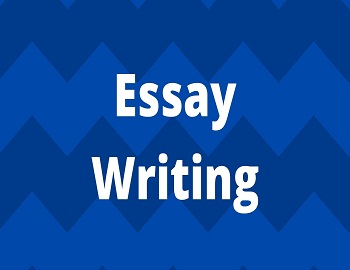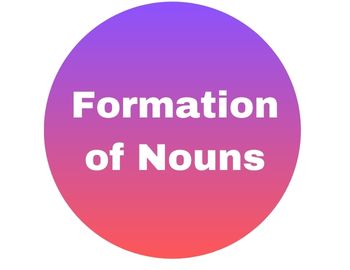Essay Writing:
(1) The word ‘essay‘ means an attempt or an experiment. Essay-writing is an attempt at giving expression to one’s ideas on a given subject in suitable words. It is an exercise in an original composition. It is an art and like other arts can be learnt by hard practice. A good essay is always divided into paragraphs that are so arranged as to form a connected whole.
(2) The three great requisites of a good essay are-
- Material- Clear and suitable ideas to be enriched by wide reading, close observation, clear thinking etc.
- Systematic Arrangement- Short, connected paragraphs having unity, order and variety, and dealing with one idea only.
- Style- The simple, clear, forceful and natural way of writing, acquired by studying the exact meaning of words and bearing in mind the rules of grammar.
(3) Parts of the Essay- An essay must always have the following three parts–
- Introduction- It should be brief, interesting and striking. It may consist of a quotation or a saying expressed in a few sentences only.
- Body- It is the main part of the essay. It should consist of two or three paragraphs each dealing with one main aspect of the subject. The paragraphs should be well connected and should have due proportion.
- Conclusion- It should be natural and effective, no abrupt and forced. The reader should not get the impression that you were forced to end the essay for want of space, time or matter.
(4) A few Hints about Essay-Writing:
- Before writing an essay, have a clear idea of the subject and understand its scope. Choose only that subject about which you know most and which is to your taste.
- Note down on a piece of paper all the idea that you can recolect on the subject.
- Make a rough outline arranging different ideas in their proper order.
- Divide your essay into different paragraphs, each paragraph dealing with one aspect of the subject.
- Now set about writing the essay, paragraph by paragraph.
- Carefully revise what you have written, correcting all mistakes.
- See that you write a neat and legible hand.
Note 1- Always begin the first line of a paragraph a little farther to the right than the other lines.
Note 2- Write short, simple sentences.
(5) A few Dont’s:
- Don’t beat about the bush. Come to the point straight away.
- Don’t use the great and high flown ideas of tohers in a great and high flown language. Be original in your own simple and homely way. Difficult words and flowery language should be avoided.
- Don’t repeat because constant repetitions will make your essay dull.
- Don’t use the first person unless relating a personal experience.
- Don’t introduce too many quotations and proverbs.
- Don’t use abbreviations.
- Don’t exceed the limit set by the examiner. A few words more, or less, however, do not make much difference.
(6) Kinds of Essays- Generally speaking there are three kinds of essays–
- Descriptive- A descriptive essay describes places, things, persons, animals, towns, villages, natural scenes etc., as, The Policeman, The Taj Mahal, The Sunset etc.
- Narrative- A narrative essay gives an account of a story, an event, the life of a person etc., as, The Mahabharat, The Battle of Plassey, A Journey by Bus etc.
- Reflective- A reflective essay consists of thoughts of a writer on a given subject or of arguments for and against a subject as, Where there is a Will, there is a Way, My Aim in Life, If I were a Minister, etc.









Comments (No)